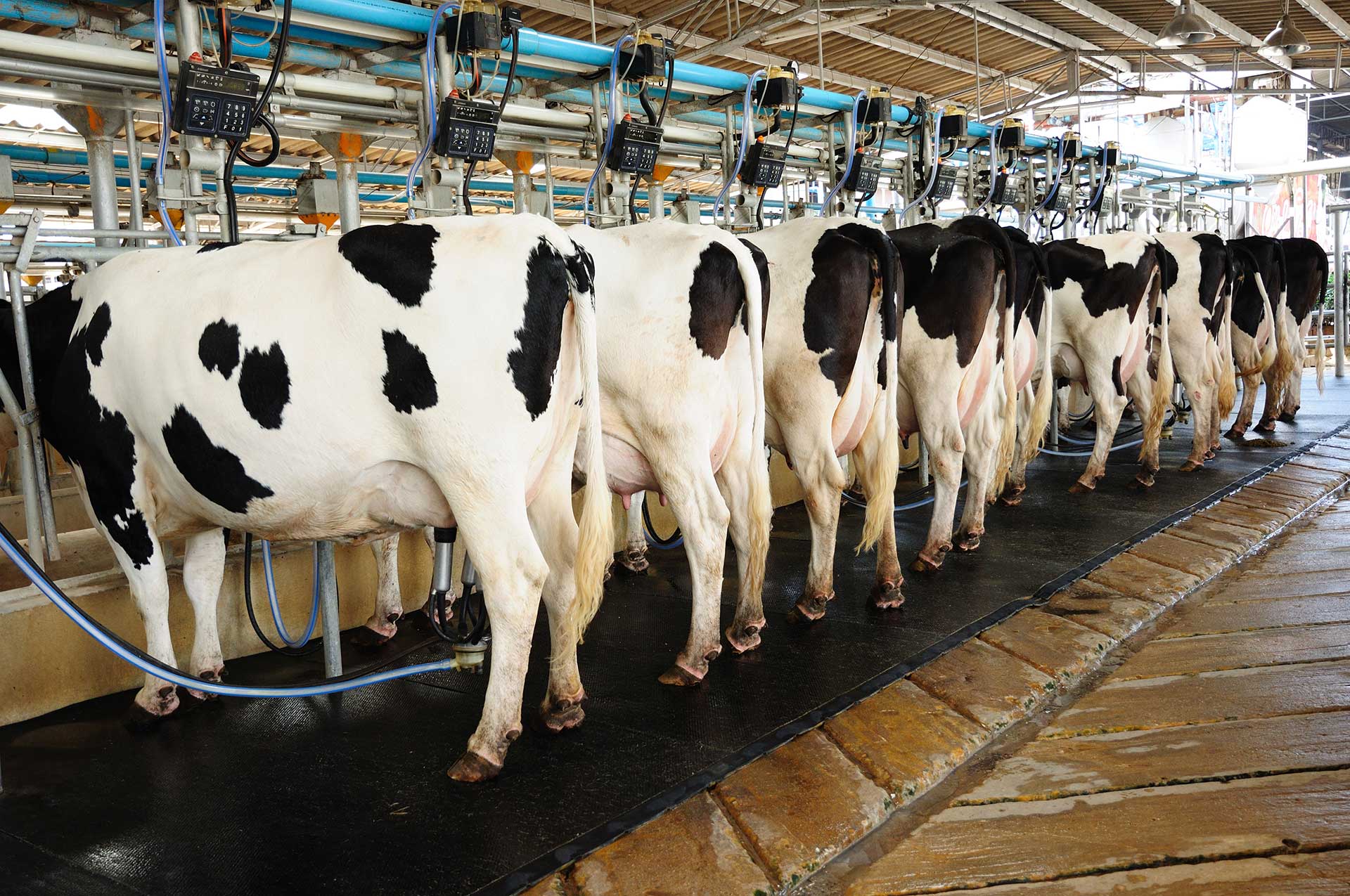Milk Lactose Content Testing
In the agricultural and forestry sectors, particularly within livestock and dairy product testing, accurate measurement of milk lactose content is crucial. Lactose forms a significant part of the carbohydrate content in milk and plays an essential role in the nutritional profile of dairy products. This service provides comprehensive analysis to ensure that producers, processors, and quality managers adhere to industry standards and meet consumer expectations.
Milk lactose content testing involves several steps from sample preparation to final analysis. The first step is proper collection and preservation of milk samples. This process includes ensuring the sample remains stable under refrigeration until it can be processed. Once collected, the sample undergoes thorough cleaning and filtration to remove any impurities or contaminants that could affect accuracy.
Several methods are available for determining lactose content in milk. The most common technique is enzymatic hydrolysis, followed by a colorimetric assay using glucose oxidase and peroxidase enzymes. This method converts lactose into glucose and fructose, which react with the reagents to produce a colored product whose intensity correlates directly with lactose concentration.
Another popular approach is spectrophotometry based on near-infrared (NIR) technology. NIR spectroscopy provides rapid results without destroying the sample, making it ideal for frequent testing in industrial settings. This technique measures the absorbance of light at specific wavelengths within the near-infrared region and correlates these values with lactose content through calibration models.
For precise quantification, reference standards from international organizations such as ISO 4892 or EN 13706 are followed. These standards provide detailed protocols for sample preparation, reagent handling, instrumental settings, and data interpretation. Compliance with these guidelines ensures accurate results that can be trusted both domestically and internationally.
Our laboratory utilizes state-of-the-art equipment including high-performance liquid chromatographs (HPLC) and automated NIR spectrometers to perform lactose content analyses accurately and consistently. Our team of experienced scientists applies their knowledge to ensure each test adheres strictly to relevant specifications, delivering reliable data that supports informed decision-making throughout the supply chain.
Understanding the importance of milk lactose content goes beyond simple nutritional assessment; it also impacts product quality control, formulation optimization, and regulatory compliance. By accurately measuring lactose levels, manufacturers can optimize their production processes, ensuring consistent product quality while meeting stringent safety requirements set forth by governing bodies like the FDA or EU directives.
Moreover, accurate measurements help in identifying potential issues early on, allowing for corrective actions to be taken promptly if deviations from expected values occur. This proactive approach not only enhances overall productivity but also contributes significantly towards maintaining consumer confidence and satisfaction.
Eurolab Advantages
At Eurolab, we pride ourselves on offering unparalleled expertise in livestock and dairy product testing services. Our team comprises highly skilled professionals who are dedicated to providing accurate results every time. Here’s why choosing us for your milk lactose content testing needs is the right decision:
- Accurate Results: Using advanced technology like HPLC and NIR spectrometers, our laboratory delivers precise measurements that meet international standards.
- Fast Turnaround Times: With efficient processes in place, we ensure quick delivery of test results without compromising on accuracy or reliability.
- Comprehensive Reporting: Alongside numerical outputs, detailed reports are provided to assist with interpretation and implementation of findings within your operations.
- Regulatory Compliance: Ensuring all tests align with local and global regulations guarantees peace of mind regarding compliance matters.
- Confidentiality Assurance: Your data remains secure throughout the testing process, adhering to strict confidentiality protocols.
We understand that accurate milk lactose content measurements are vital for maintaining high standards in livestock management and dairy product manufacturing. At Eurolab, we take pride in delivering exceptional service backed by years of experience in this field.
Quality and Reliability Assurance
- Dedicated Quality Control Personnel: Our laboratory employs dedicated quality control personnel responsible for ensuring that all tests meet our stringent internal standards. These individuals monitor every stage of the testing process, from sample preparation to final analysis.
- Continuous Training and Development: Regular training programs keep our staff updated on the latest methodologies and best practices in dairy product analysis. This commitment ensures we remain at the forefront of technological advancements while maintaining consistent excellence across all services offered.
The quality assurance framework implemented at Eurolab encompasses multiple layers designed to catch any discrepancies early during the testing cycle. By doing so, we minimize errors that could arise later in the process when more extensive corrections would be necessary. Additionally, our robust quality assurance system includes regular audits conducted by independent third parties, further enhancing credibility and trustworthiness.
Our rigorous adherence to international standards like ISO 17025 guarantees that all tests performed within our facilities comply with recognized benchmarks for laboratory excellence. This commitment ensures that clients receive reliable results they can confidently use in their operations or presentations before regulatory bodies.
International Acceptance and Recognition
- Global Certification Bodies: Eurolab holds certifications from renowned global certification bodies such as ISO 17025, which validate our laboratory’s competence in performing various types of dairy product analysis. These credentials underscore our capability to deliver consistent high-quality results across borders.
- Affiliated Memberships: Our affiliation with reputable industry organizations like the International Dairy Federation (IDF) and the American Society for Testing and Materials (ASTM) allows us access to cutting-edge research and collaboration opportunities that enhance our expertise further.
The recognition gained from these affiliations also contributes positively towards fostering trust among clients worldwide. It demonstrates our commitment to staying current with industry trends and maintaining best practices in dairy product testing. Moreover, being part of such networks enables us to participate actively in standard-setting initiatives aimed at improving the quality and safety of dairy products globally.
Our extensive network of relationships extends beyond mere professional connections; it encompasses a shared dedication towards advancing knowledge within our sector. Through these affiliations, we contribute to establishing uniform guidelines that benefit all stakeholders involved in dairy production and processing.





